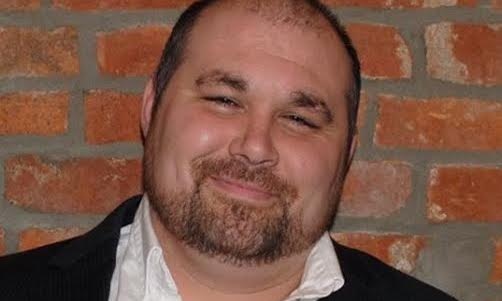Political science major Reese Neader ’10 was not around when President John F. Kennedy spoke the immortal words, “Ask not what your country can do for you—ask what you can do for your country,” but they are the embodiment of his career path.
In 2014, Neader established Forge Columbus, a social enterprise company that provides assistance for small businesses, individuals and communities by linking them to sources of income and government services.
From that experience, Neader launched Radius, the central Ohio internship program for Denison students. Radius is a collaboration with the college’s Austin E. Knowlton Center For Career Exploration.
For the Spring 2016 semester, 20 student interns were under Neader’s wing, working in his German Village office and elsewhere in the state capital.
Intern Charlotte Underhill ’16, an English literature major, managed communications for Forge Columbus, helping to grow its support base. “My primary goal was to increase the visibility of Forge in the city of Columbus, because it’s a growing nonprofit and still pretty small right now.”
Underhill is heading to grad school at Carnegie Mellon University for professional writing. “I want to pursue a career in the nonprofit sector.”
Nathaniel Nakon ’17, economics and political science major, worked with Neader to research and build a model for an organization to help small businesses and start-up entrepreneurs in Columbus, “getting them financing, which a lot of small businesses have trouble getting,” he said. “You have to figure out how to do it yourself. All experience is valuable.”
Richard T. Berman, dean of career preparation spoke of Neader saying, “I got to see him work with the students directly. He not only found the sites for these 20 students in the first half-year of the program, he provided an anchor location for them to gather. They would disperse to his partners, then Reese became their mentor.”
“He’s a networker. He’s an empowerer. He’s an advocate,” Berman said. “Without Reese I don’t think there would have been such a richness of unanticipated benefits of the design of this program. Reese is the one who made it happen.”
Neader points to faculty and staff including professors Andrew Katz and James Pletcher of the political science department and Fadhel Kaboub in economics as key inspirations.
“I grew up in trailer parks in southeastern Ohio and worked construction for four years before I went to Denison,” the policeman’s son said. “They were very influential in just giving me the confidence I needed to succeed and helping me to dream big.”
Crediting Katz and Pletcher, he said, “They both made me appreciate the value of understanding international politics and economics and how it fits in to the basic everyday things we deal with here. Working with those Denison professors helped give me the frame that I needed to understand how working locally can have a global impact, and how working globally can have local impact.”
Following graduation, he served as the youth vote director for the 2012 Obama presidential campaign in Pennsylvania. And he traveled to Egypt for the State Department to organize youth leaders during the Arab spring uprising, teaching them how to organize community resources to influence public policy.
Then came Forge Columbus. “The goal of Forge Columbus is to support local entrepreneurs who contribute to the city’s growth and prosperity. It’s a civic organization dedicated to advancing shared prosperity in Columbus; a platform for launching community projects that advance opportunity,” he said.
The nonprofit links volunteers to select projects that improve the city’s business climate. Community partners include the City of Columbus, Greater Columbus Arts Council, United Way of Central Ohio: Neighborhood Partnership Center, the Franklin County Office of Economic Development, and the Ohio Small Business Development Center.
A key achievement for Forge Columbus was its launch of Kiva Columbus. Kiva, a Swahili word for “agreement” or “unity,” is a global non-profit “crowd funding” platform generating zero interest micro loans.
“Anyone who has a personal income of less than $100,000 is eligible,” Neader said. “Kiva doesn’t use a credit. Kiva uses the crowd.”
“Crowd funding,” he explains, is an Internet approach to raising money — “Basically, people pooling together to invest their money to get a shared outcome.”
“The Statue of Liberty was crowd funded,” he said. “Back before the Internet you’d get people to contribute their pennies or dollars.”
“He brings people to our attention,” said Jerome W. Jones, business consultant with the Ohio Small Business Development Center.
Jones said, “If someone needs capital and Kiva is a viable alternative, we refer them to Kiva financing.”
“To date we have provided more than $100,000 in zero-interest micro loans to entrepreneurs in 10 different neighborhoods,” Neader said. “Sixty percent have gone to minorities and women. One quarter of those dollars have gone to funding social enterprises.”
“Economic and community development are very closely aligned,” Jones said. “It’s hard to have a strong community without a strong economic base.”
Katz summarized, “From very early on in my relationship with Reese, I was struck by his enthusiasm, entrepreneurial effectiveness, and ability to match his political passions with practical activism. Reese was not just a talker, but a doer. He brought people together — students, faculty, and professionals in the policy and business communities, very much as he is doing now in Columbus.”

